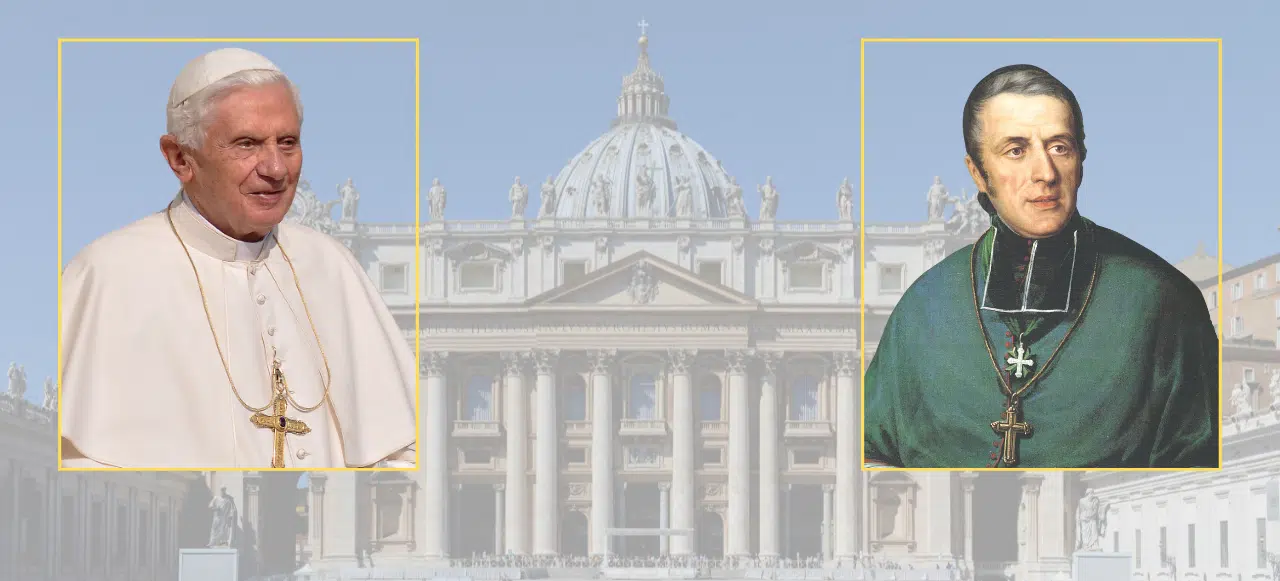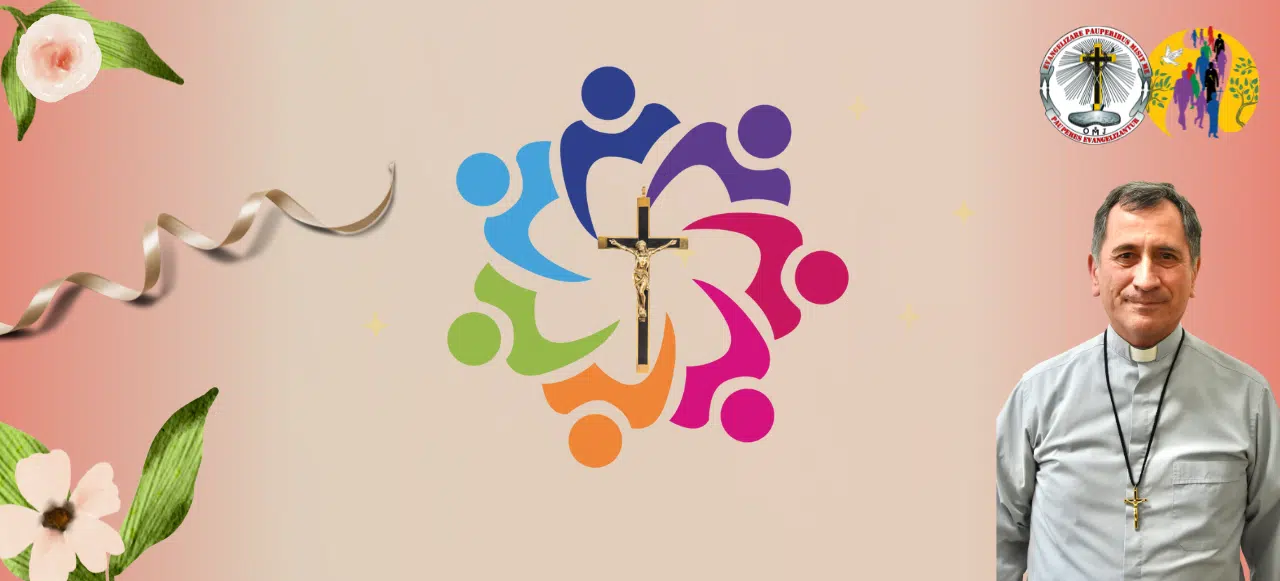Pope Benedict XVI on a visit to Marseille. What would have happened if Pope Benedict and Bishop Eugene de Mazenod had met?
Fr. Athanasius von Wedon, OMI
Pope Benedict XVI on a visit to Marseille. What would have happened if Pope Benedict and Bishop Eugene de Mazenod had met? An ideal subject would have been put on the table – “the Church of the poor” – initiated, of course, by Eugene, once Benedict had taken his seat at the table with delicate restraint and allowed his lively counterpart to lead the conversation. Bishop Eugene would have plunged into his topic without much ado, digesting vast amounts of facts during the meal and producing long sentences that, once set in motion, would have been difficult to stop. The human, the all-too-human, is abundant in Eugene. On the other hand, such a pastoral discussion about the “poor church” in all its facets seems more harmless than, for example, the debate about the existence of God and the compatibility of faith and reason, especially when the guest is called Josef Ratzinger / Pope Benedict. But of course, the pressing issue of the “poor church” could not be avoided in Eugene’s home.
So, a table talk in the bishop’s house in Marseille with soupe au pistou and fish á la Provence at a table set with fine Veuve Perrin china which Eugene had quickly borrowed from his distinguished relative, the Marquis Dedons de Pierrefeu. The scene sounds like something out of an overdramatic chamber play. On one side, Benedict’s inhibited, stiff atmosphere; on the other, the fiery bishop of Marseille’s urgent theme. One must have delved deeply into the life, work and thought of the protagonists to invent such a bizarre table conversation between Benedict and Eugene. Yes, one must even speak of a passion for Benedict and Eugene.
Theological spaces with the power of faith and missionary fire that fit the respective characters: on the one hand, the “rumbling hooligan” Eugene, on the other, the intellectual Benedict, who contemplates the signals that speak to the situation of modern man in view of the question of God. But there are also many parallels: both were animated by a great love for the Church, both suffered from their beloved homeland which was never able to embrace them. In Benedict’s case, the desertification of the theological landscape in Germany; in Eugene’s, the France of the Revolution, with Napoleon as its consequence, and the general decline of the faith. Joseph Ratzinger always remained the aesthetic intellectual who seemed rather brittle compared to the charismatic and visionary Eugene de Mazenod.
In order to connect the two paths of life, we take a look at some of the themes that preoccupied these two great men of the Church, Pope Benedict XVI and Saint Eugene de Mazenod. There are certainly parallels to be found. The charism of Saint Eugene de Mazenod lives on in his sons, the Oblates, and in the entire Mazenodian family, even today in the 21st century, as the General Chapter 2022 showed. The course for the future has also been set. For Pope Benedict XVI, it is much too early to place his life’s work in the history of the Church. It remains to be seen if and how his pontificate will prove itself, which interpretations will emerge and prevail, how the whole thing will develop.


